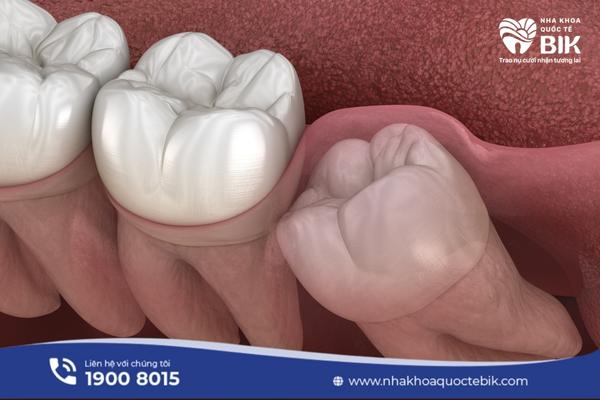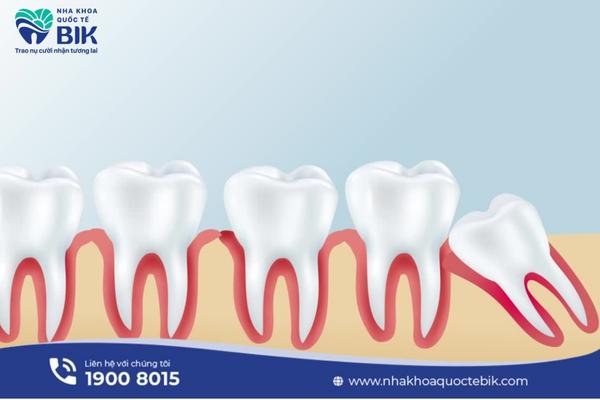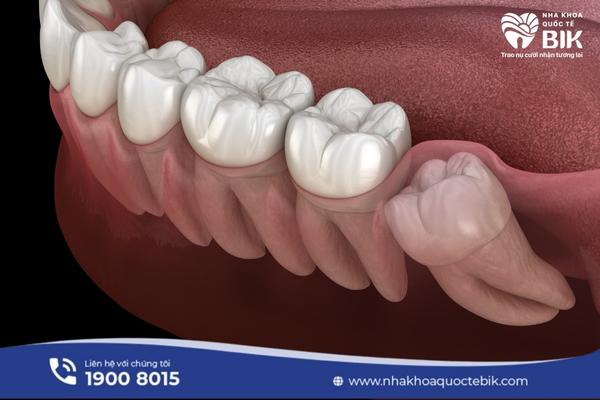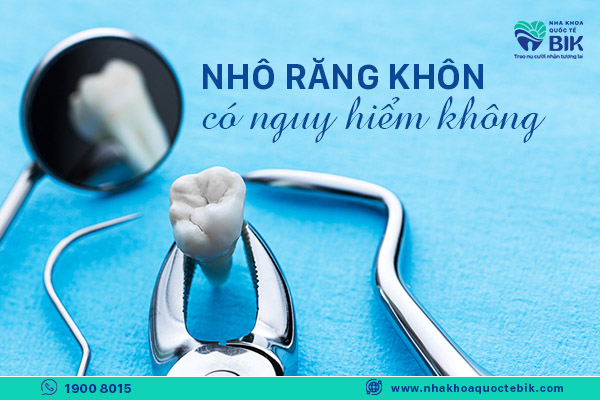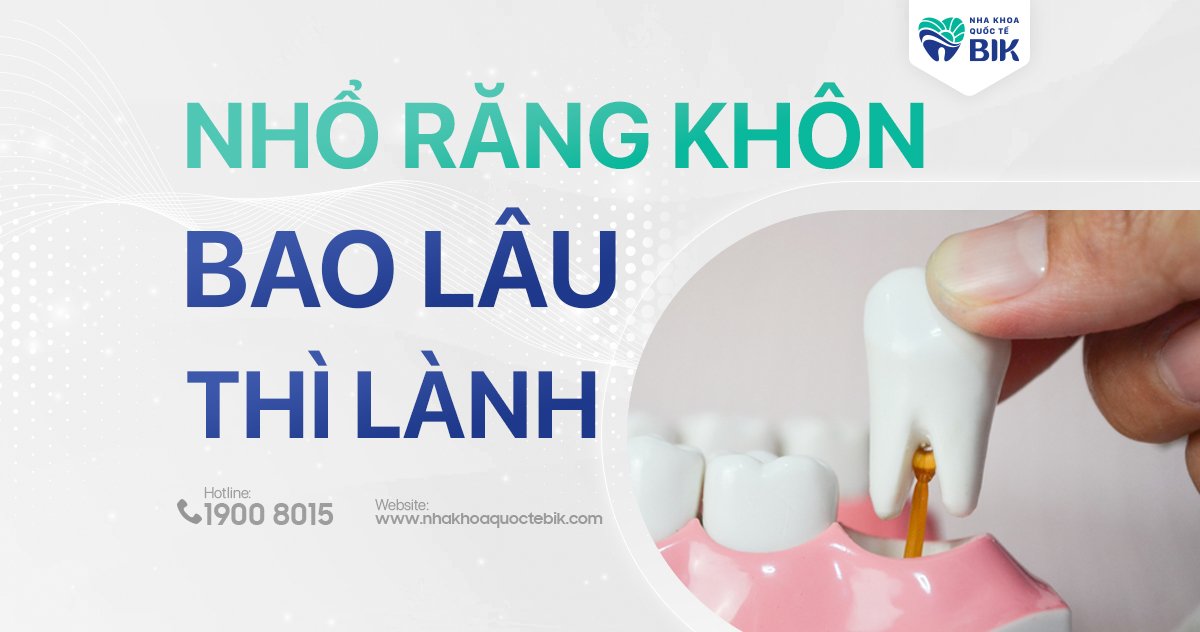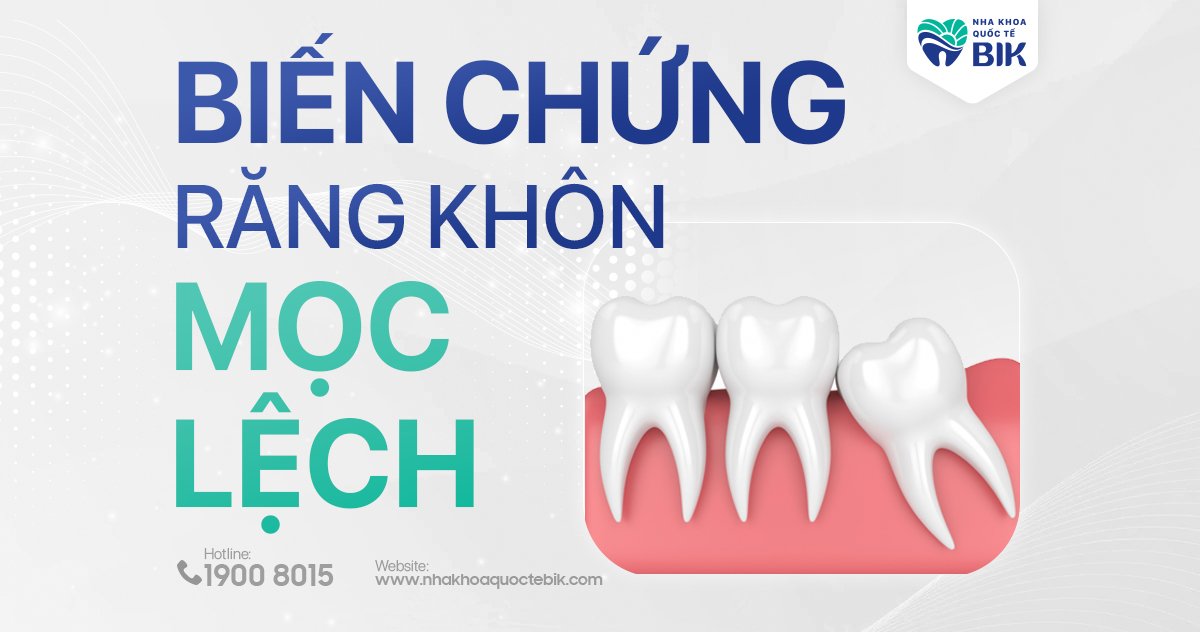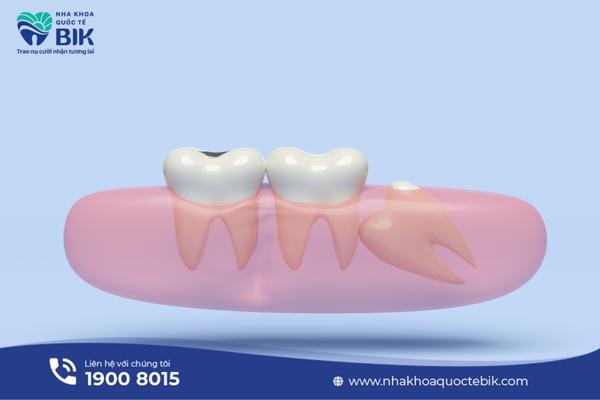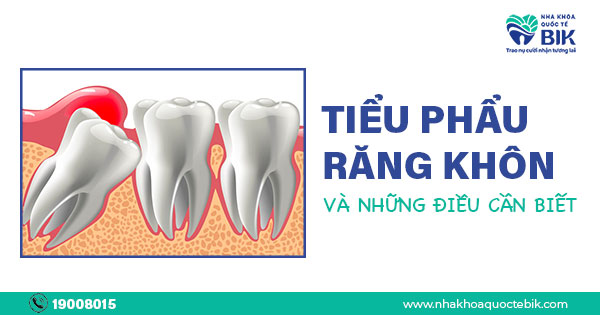
Wisdom teeth are the last teeth to grow in the jaw, these teeth have almost no chewing function. On the contrary, we need to remove wisdom teeth if they cause pain and discomfort. But before wisdom teeth surgery, there are things to note to ensure safety.
1. Which tooth is the wisdom tooth in the jaw?
Wisdom teeth will have many different names such as number 8 teeth, molars, third molars. Wisdom teeth will grow in the last position on each side of the jaw, when all other teeth on the jaw have fully grown.
Wisdom teeth begin to grow from around 18 to 24 years old, but not everyone will grow wisdom teeth. The time from when wisdom teeth start to grow until they are fully grown can last from several months, even up to several years. When wisdom teeth begin to grow, there will be symptoms such as: pain, swollen gums and difficulty in eating and drinking.
2. Common cases of wisdom teeth eruption
Because wisdom teeth grow in adulthood, the jawbone structure is already solid. Therefore, when wisdom teeth grow, it often causes long-term complications and can cause dangerous complications. The following are cases of wisdom teeth eruption that you should know.
2.1 Wisdom teeth grow forward
This is the most common condition of wisdom teeth growing crookedly. In this case, the wisdom tooth is tilted towards tooth number 7 at about 45 degrees and pressed against tooth number 7 next to it. If this condition persists, tooth number 7 will be compressed and displaced.
2.2 Wisdom teeth grow vertically
Wisdom teeth grow straight but cannot emerge due to the large tooth body. Or the tooth grows relatively straight and has emerged on the jaw but the gap between the teeth is not standard, making it easy for food to get stuck between teeth number 7 and number 8. This will cause bad breath, tooth decay, gingivitis, etc.
2.3 Impacted wisdom teeth
The tooth grows horizontally at a 90-degree angle with tooth number 7 and is located under the jawbone. In this case, it cannot be seen with the naked eye but requires an X-ray to evaluate the entire jaw. Impacted wisdom teeth that are left for a long time are very dangerous, easily causing cysts around the teeth leading to cysts, even damaging the roots of tooth number 7
3. Harmful effects of impacted and crooked wisdom teeth
Misaligned and crooked wisdom teeth often cause dangerous effects on oral health
3.1 Tooth decay
Misaligned wisdom teeth will create a gap that traps food. In this position, it is difficult to clean the mouth properly, thereby creating a favorable environment for bacteria to grow, leading to tooth decay and affecting adjacent teeth.
3.2 Gum disease, periodontitis
The spaces around wisdom teeth are prone to food accumulation, in the long run this is a favorable environment for bacteria to grow. Over time, it will cause gingivitis, periodontitis…
3.3 Infection, periodontitis
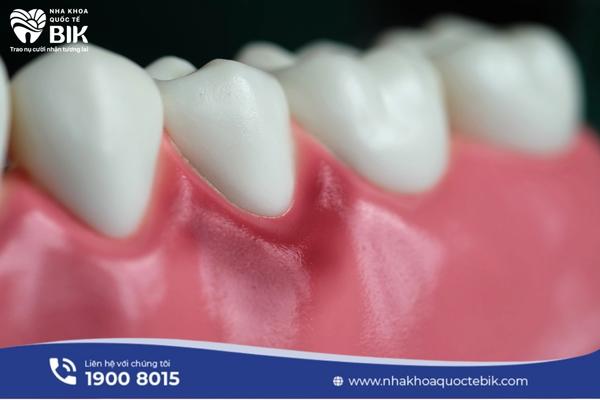
Teeth covered by gums or hidden in the jawbone cause food and bacteria to get stuck in the gums, causing periodontitis, acute periodontitis.
3.4 Crowding
Wisdom teeth grow crookedly, causing the adjacent teeth to shift. Cases of crooked teeth growing after braces can cause crowding to recur.
3.5 Loosening of adjacent teeth
Wisdom teeth growing horizontally affect the root of tooth number 7, causing it to loosen and even cause tooth loss.
4. When is wisdom tooth surgery necessary?
If the wisdom tooth grows straight, causing pain or discomfort, it is not necessary to have minor surgery to remove the wisdom tooth. However, you need to pay close attention to oral hygiene, because wisdom teeth grow in the innermost position, making it very difficult to clean.
Impacted or crooked wisdom teeth have a very high risk of needing minor surgery to remove them, because when these teeth exist, they can easily cause dangerous diseases and complications.
In addition, impacted wisdom teeth in the jawbone will cause jaw stiffness and make it impossible to open the mouth wide. During the process of growing these wisdom teeth will cause pain, can cause high fever, affecting daily activities.
5. Is wisdom tooth surgery painful?
To remove wisdom teeth from the jawbone, the doctor will perform minor surgery with specialized tools and cannot perform extraction by conventional methods. So is wisdom tooth surgery painful?
In fact, whether wisdom tooth surgery is painful or not depends on many different factors such as: health status, the skill of the doctor performing the surgery and the types of machines and supporting equipment.
In addition, before wisdom tooth extraction, the doctor will perform anesthesia so you will not feel any pain. After wisdom tooth extraction, the doctor will prescribe pain relievers so that swelling and mild pain will go away quickly.
6. Things to note when having wisdom tooth surgery

– After the anesthesia wears off, the patient will feel pain at the site of the tooth extraction wound. In this case, the patient does not need to worry too much, but needs to pay close attention to taking good care of the oral cavity to avoid infection at the surgical site.
– If the patient releases the cotton/gauze too soon, the bleeding may continue for several hours. Therefore, it is necessary to keep the cotton/gauze in place until the bleeding stops completely.
– You can use ice to apply to the wound when there is swelling in the cheek area. When the blood clot gradually dissolves, the swelling will go away.
– You need to strictly follow the hygiene instructions, use the medicine prescribed by the doctor, do not arbitrarily use pain relievers or antibiotics bought from outside.
– Do not rinse your mouth with salt water as it will cause more bleeding.
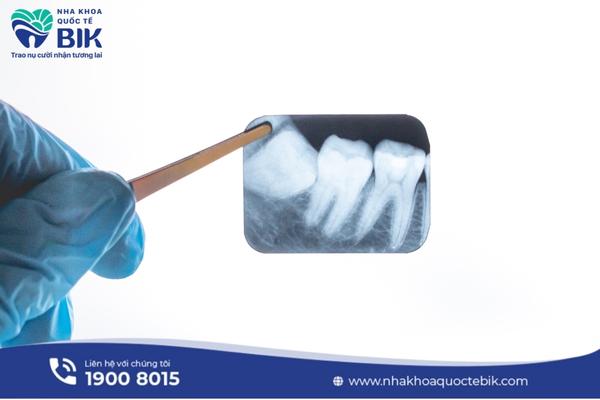
– Do not spit within the first 6 hours after surgery.
– Do not use your hands, tongue or any other tools to impact the wound site
– Do not chew at the site of the newly extracted tooth, to avoid breaking the blood clot and food getting stuck in the tooth socket. You should only eat soft foods like porridge and drink plenty of water.
– Do not use stimulants such as alcohol to prevent abnormal bleeding. Do not smoke until the wound is completely healed to avoid infection.
– If you have applied measures to stop bleeding but bleeding still occurs after 24 hours, you should see a doctor for immediate re-examination and treatment.
7. Standard medical procedure for wisdom tooth surgery at BIK International Dental Clinic
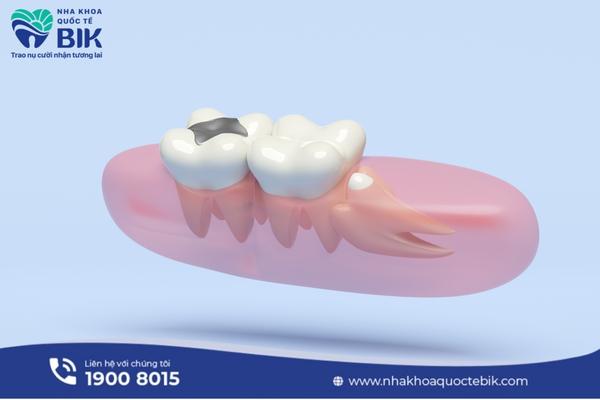
– Step 1: Examination and preparation for wisdom tooth surgery
The doctor will conduct a general check of oral health. Assess the condition of wisdom teeth, tooth decay, tartar, gingivitis (if any) … from which to develop the safest treatment plan.
Next, an X-ray of the entire jaw will be taken to determine the position of the tooth root, the direction of growth and the condition of the jaw bone around the wisdom tooth. If the tooth is red, swollen, or infected, the doctor must prescribe medication and postpone the tooth extraction date until oral health is guaranteed.
– Step 2: Disinfect and clean the oral cavity
The patient rinses his mouth with a specialized mouthwash. The mouth and the area of the tooth to be extracted are carefully disinfected to ensure that the surgery is not attacked by bacteria.
– Step 3: Anesthesia
The doctor proceeds to anesthetize the area to be extracted.
– Step 4: Minor tooth surgery
The doctor will use a knife to cut the gums to expose the tooth body. In cases where the tooth is impacted or trapped in the jawbone, the bone must be cut to create an exit for the tooth. The tooth body and root will be separated into many parts and removed with tooth extraction forceps. Finally, after the wisdom tooth has been completely removed from the jaw, the wound will be sutured and covered with a blood clot.
The patient will return for a check-up after 1 week for the doctor to check the healing level, ensuring the safety of the customer.
8. Price list for minor wisdom tooth surgery at BIK International Dental Clinic
Minor wisdom tooth surgery is not too complicated, but to ensure safety, you should pay attention to the issues we mentioned above and consider choosing a safe dental address to perform minor wisdom tooth surgery to ensure your health.

